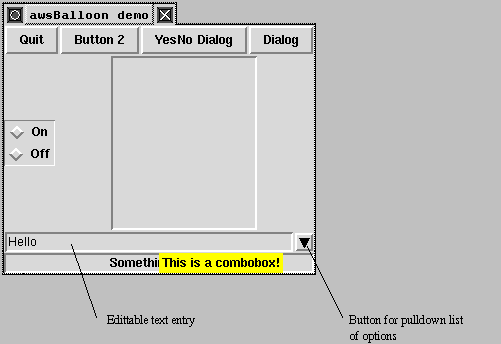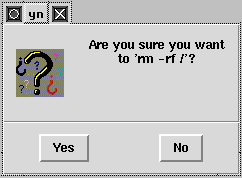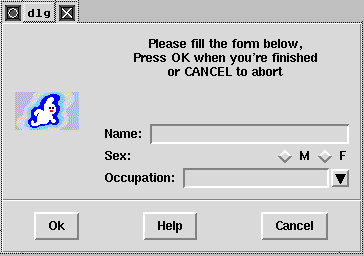
2.1 aws_balloon
An aws_balloon is a small 'floating' label (better known as Window Tip or
Balloon) that pops up when a widget has had focus for some amount of
time (i.e. 500 msec). It contains context-sensitive help, explaining what the
use is of the widget is.

Fig 1. aws_balloon with Tip and Messagebar
Another function of the aws_balloon is to display (optionally) a (separate) message in a pre-configured label- or messagewidget, immediately when the mousecursor enters a widget, which allows a less intrusive form of context- sensitive help.
2.2 aws_combobox
An aws_combobox is a combination of a textentry where the user can type
input, and a listbox from which several pre-defined options can be chosen.
Next to the input entry is a small button with a down-arrow (or more a triangle) which can be used to pull down the listbox. The user clicks on one of the options, and the option will be inserted into the textentry, and it will be moved to the top of the listbox.

Fig 2. aws_combobox

Fig 3. aws_combobox with pulldown listbox
2.3 aws_dialog
aws_dialogs are toplevel windows, usually containing a bitmap, a message
and 2 or three buttons (Ok, Cancel, Help). They are design for simple
interaction with the user such as asking Yes/No questions, Confirming steps,
or simply displaying a message and waiting until the user presses the Done
button.

Fig 4. A simple aws_dialog
aws_dialogs can also be extended with user-defined widgets. The basic building blocks will still be available but the programmer gets access to a small piece of space (a frame) in which widgets can be packed.

Fig 5. A more complex Dialog containing entries, comboboxes, etc.